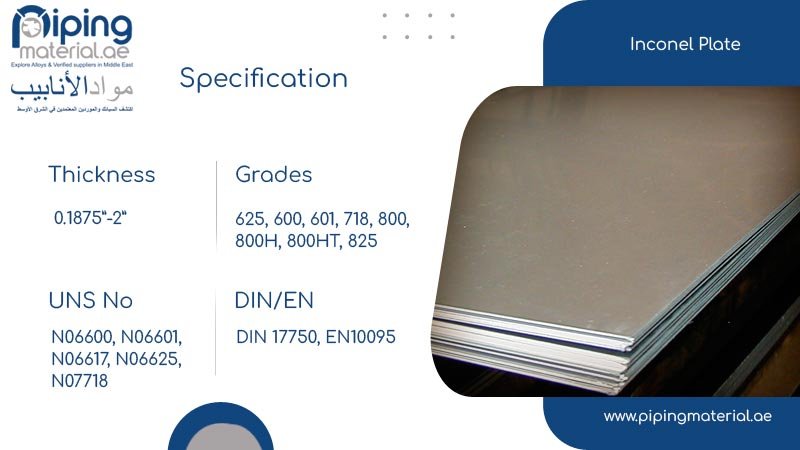How to Pass Your City and Guilds Maths Level 2 Exam Only: A Guide to Success
In today’s competitive world, having a solid grasp of mathematics is more than just a useful life skill—it’s a critical component for career progression, further education, and personal confidence. For many adults and learners returning to education, the Functional Skill Maths Level 2 Exam offers a practical and achievable route to demonstrate maths competency equivalent to a GCSE pass. Whether you’re applying for a job, enrolling in an apprenticeship, or aiming for university, passing the Maths Level 2 Exam can open important doors.

In this blog, we’ll explore what the Functional Skill Maths Level 2 Exam is, why it matters, what it includes, and how you can prepare effectively.
What is the Functional Skill Maths Level 2 Exam?
The Functional Skill Maths Level 2 Exam is a government-recognized qualification in the UK, designed to test real-world maths skills. Unlike traditional academic exams, it focuses on everyday problem-solving using mathematics in practical scenarios, such as managing personal finances, understanding bills, or interpreting data in graphs and tables.
It is considered equivalent to a Grade 4 (formerly C) at GCSE level. This means that passing the Maths Level 2 Exam can help meet the entry requirements for university courses, apprenticeships, or jobs that require a basic level of numeracy.
Why Take the Maths Level 2 Exam?
There are several reasons why learners choose to take the Maths Level 2 Exam:
-
Career Advancement: Many employers in sectors like healthcare, education, and administration require a minimum level of maths proficiency. The Functional Skills qualification is widely accepted by employers and training providers.
-
Higher Education: If you didn’t pass your GCSE maths or studied overseas, the Functional Skill Maths Level 2 Exam provides an alternative route to meet university entry requirements.
-
Personal Development: For many adults, especially those returning to education after a gap, this exam helps build confidence and essential life skills, from budgeting to decision-making.
What Does the Exam Involve?
The Functional Skill Maths Level 2 Exam typically consists of two parts:
-
Non-Calculator Section: This part tests your mental maths and problem-solving without the aid of a calculator.
-
Calculator Section: You’re allowed to use a calculator here, and the problems are more complex.
Both sections assess your ability in three main areas:
-
Using Numbers: Includes basic operations, fractions, decimals, percentages, and ratios.
-
Understanding Measure, Shape, and Space: Involves time, money, area, volume, and interpreting scale drawings.
-
Handling Data: Covers charts, graphs, averages, and probability.
The focus is on practical application. For example, you might be asked to calculate how much paint is needed to cover a room, or compare mobile phone plans based on usage and cost.
How to Prepare for the Functional Skill Maths Level 2 Exam
Preparation is key to success. Here are some tips:
-
Take a Diagnostic Assessment: Many online platforms offer free diagnostic tests that identify your strengths and weaknesses, helping you focus on what needs improvement.
-
Use Past Papers and Practice Tests: Familiarize yourself with the exam format and time constraints by working through past papers. This also helps reduce exam anxiety.
-
Enrol in a Course: Consider joining an online or in-person course. Many providers offer flexible schedules to fit around work and personal commitments. These courses are tailored specifically to the content of the Maths Level 2 Exam.
-
Watch Video Tutorials: Visual learners benefit greatly from tutorial videos that explain concepts in a clear, easy-to-understand way.
-
Stay Consistent: Even 20–30 minutes a day can make a big difference over time. Set realistic goals and keep track of your progress.
Common Challenges and How to Overcome Them
-
Maths Anxiety: It’s common, especially if you’ve struggled in the past. Try to approach the material with a fresh mindset and remind yourself that this is about practical maths, not abstract theory.
-
Time Management: During the exam, practice skipping questions you’re unsure about and returning to them later. Time management is crucial for completing both sections.
-
Interpreting Questions: Read carefully and underline key information. Functional Skills questions often come in the form of short stories or real-life scenarios, so identifying what’s being asked is half the battle.
Final Thoughts
Passing the Functional Skill Maths Level 2 Exam is not only achievable—it’s a smart move for anyone looking to improve their opportunities in life, work, or education. Its practical focus means that you’re learning maths that you’ll actually use, making it more relevant and engaging than many traditional maths qualifications.
Whether you’re studying independently, attending a course, or revising between work shifts, your efforts are an investment in your future. Don’t underestimate what passing the Maths Level 2 Exam can do for your confidence and career prospects.
So take the first step—start preparing today, and give yourself the skills and qualifications you need to move forward.
- Share

YOU MIGHT ALSO ENJOY
Iowa Medical Cannabis Card Online: A Complete Guide to Accessing Iowa Medical Marijuana Card Services
Stephen Romero - January 16, 2026
Navigating Legal Excellence: Discover the Best Corporate Law Firms in India
Stephen Romero - December 31, 2025
Choosing the Right Hamilton Driving School near me A Complete Guide for New Drivers
Stephen Romero - December 23, 2025
search
FAST ACCESS
- art&gallery (4)
- Automotive (25)
- beauty (7)
- blog (419)
- Business (744)
- cleening (13)
- clinic (1)
- courier services (4)
- dentel care (6)
- Driving school (3)
- electronics (1)
- events (1)
- food (1)
- forests (11)
- gameing (5)
- Health (27)
- Health & Fitness (218)
- Home & Garden (16)
- Landscaping (1)
- Law (16)
- Lifestyle (12)
- machinery (5)
- Real Estate (9)
- Share Market (15)
- Shopping (5)
- Technology (31)
- tool (2)
- toys (2)
- Travel (43)
- Wedding & Events (334)
must read
Electropolished Pipe: A Premium Offering from SS Seamless Pipe Manufacturers in India
Stephen Romero - January 21, 2026
Why Industrial Steel Pipes Are Essential for Modern Energy Projects?
Stephen Romero - January 21, 2026
Pipe Fittings Manufacturers in India: Quality Solutions from Trusted Flange Manufacturers in India
Stephen Romero - January 21, 2026
Inconel Plate and Hastelloy Plate: High-Performance Solutions for Extreme Environments
Stephen Romero - January 21, 2026
recent post
ARCHIVES
- January 2026 (127)
- December 2025 (151)
- November 2025 (132)
- October 2025 (105)
- September 2025 (166)
- August 2025 (164)
- July 2025 (150)
- June 2025 (173)
- May 2025 (99)
- April 2025 (1)
- March 2025 (8)
- February 2025 (9)
- January 2025 (8)
- December 2024 (25)
- November 2024 (40)
- October 2024 (11)
- September 2024 (1)
- July 2024 (10)
- June 2024 (11)
- May 2024 (31)
- April 2024 (15)
- March 2024 (19)
- February 2024 (6)
- January 2024 (7)
- December 2023 (11)
- November 2023 (1)
- July 2023 (13)
- June 2023 (21)
- May 2023 (27)
- April 2023 (23)
- March 2023 (16)
- February 2023 (31)
- January 2023 (27)
- December 2022 (11)
- November 2022 (12)
- October 2022 (11)
- September 2022 (11)
- August 2022 (14)
- July 2022 (13)
- June 2022 (19)
- May 2022 (17)
- April 2022 (10)
- March 2022 (12)
- February 2022 (8)
- January 2022 (9)
- December 2021 (19)
- November 2021 (4)
- October 2021 (6)
- September 2021 (4)
- August 2021 (4)
- July 2021 (10)
- June 2021 (6)
- May 2021 (2)
- April 2021 (2)
- March 2021 (45)
- August 2020 (31)
- July 2020 (30)
- June 2020 (29)












